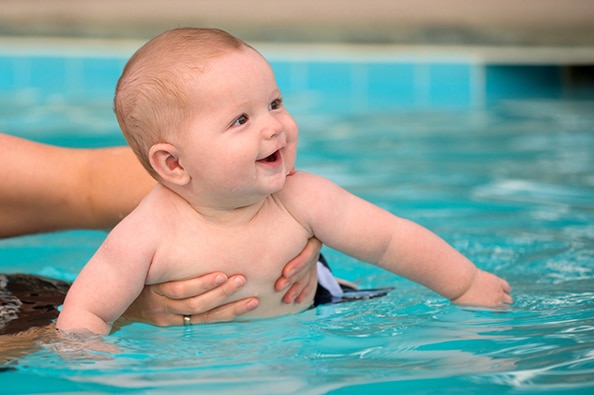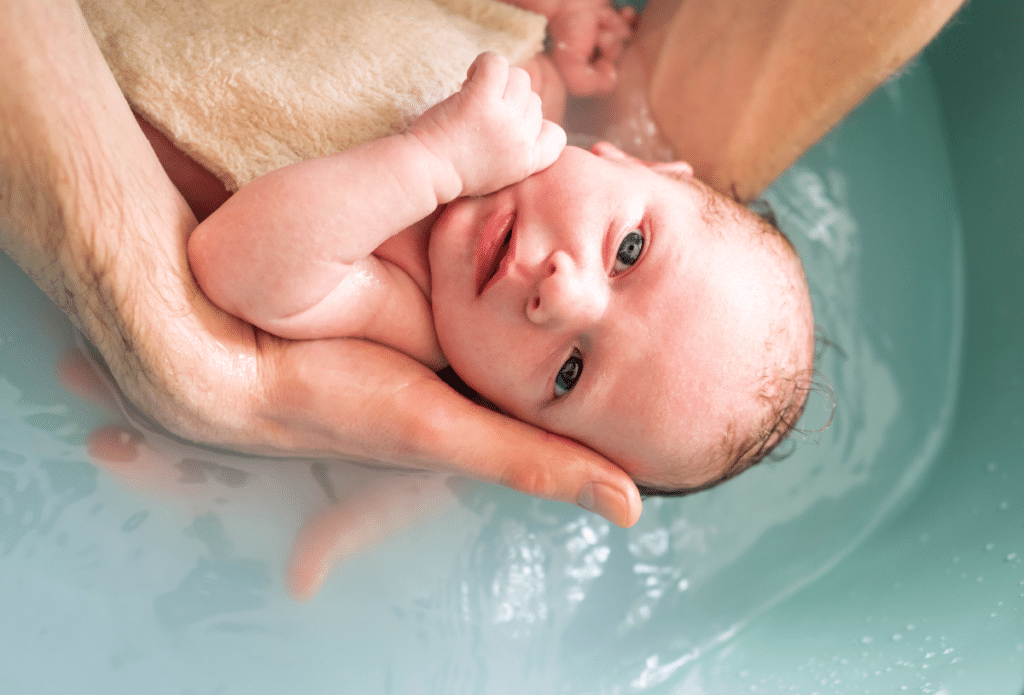Summer is here, and what better way to beat the heat than by taking a dip in the refreshing water? As a parent, you may be wondering when and how to introduce your little one to the wonderful world of swimming. Get ready to make a splash and dive into the magic of baby swimming! With our tips and recommendations, you’ll be well-equipped to introduce your precious one to water.
When to start swimming lessons?
Generally, it is recommended to wait until your baby is at least six months old before starting swimming lessons. At this age, they have better head control and are more prepared for the water environment. However, always consult with your pediatrician before beginning any swimming activities.
When Can My Baby Swim in Salty Water?
Babies can swim in salty water once they are at least six months old. However, remember that prolonged exposure to salty water can dehydrate infants. Therefore, limit their time in the sea and ensure they stay adequately hydrated.
Sea Water vs. Pool Water
When it comes to choosing between seawater and pool water, both options have their own advantages. Sea water contains natural minerals and may be gentler on your baby’s delicate skin.
On the other hand, pool water is treated with chemicals to maintain cleanliness. If you choose to swim in a pool, make sure it’s properly chlorinated, and the water quality is regularly monitored. It’s also a good idea to rinse your baby’s skin with fresh water after swimming to remove any chlorine residue.
Benefits of Baby Swimming
Swimming offers numerous benefits for your little one’s physical and mental development. Here are some of the advantages of swimming for your baby:
1. Water Familiarity: Introducing your baby to water at an early age helps build their confidence and comfort around it.
2. Motor Skills Development: Splashing and kicking in the water helps develop your baby’s muscles, coordination, and balance.
3. Cognitive Development: The sensory experience of swimming stimulates your baby’s brain and enhances their cognitive abilities.
4. Bonding and Social Interaction: Baby swimming classes provide an opportunity for bonding with your little one and for them to interact with other babies, promoting social skills.
Safety Tips
Ensuring a safe swimming experience for your baby is of utmost importance. Consider the following safety tips:
1. Constant Supervision: Never leave your baby unattended in or near the water, even for a moment. Drowning can occur quickly and silently.
2. Use Appropriate Floatation Devices: Invest in a properly fitted life jacket or floatation device designed specifically for infants.
3. Gradual Exposure: Begin with short and gentle sessions in the water, gradually increasing the duration as your baby becomes more comfortable.
4. Temperature Considerations: Keep the water at a comfortable temperature, around 32-34°C (90-94°F), to prevent your baby from getting too cold.
From Which Age to Introduce
While the six-month mark is often considered a sweet spot due to improved head control and overall physical development, some babies may display signs of readiness earlier on. Keep an eye out for cues such as a strong neck and core strength, curiosity toward water, and an inclination to reach out and splash. These signs could indicate that your baby is eager to dip their tiny toes into the water earlier than expected.
On the other hand, some babies might need a little more time to acclimate to the idea of swimming. They might prefer observing the shimmering surface from the safety of your arms or enjoy gentle water play in a controlled environment, like the bathtub until they feel more comfortable and confident.
What to Avoid
While baby swimming is a wonderful experience, there are a few things to avoid:
1. Overexposure to Sun: Protect your baby’s delicate skin by applying sunscreen (specifically designed for infants) and dressing them in sun-protective clothing.
2. Unhygienic Water: Ensure the water you choose for swimming is clean and safe. Avoid swimming in areas with poor water quality or where there is a risk of contamination.
3. Forceful Techniques: Never force your baby into the water or push them beyond their comfort zone. Always respect their cues and readiness.
An insight from mamahood
Introducing your baby to swimming can be a memorable and enjoyable experience for the whole family. Remember to prioritize safety, choose the right water environment, and consult with your pediatrician before starting any swimming activities. Remember, every baby develops at their own pace, so be patient and allow them to progress at their own speed. Cherish these moments, mama, as they grow up so fast! Happy swimming!








